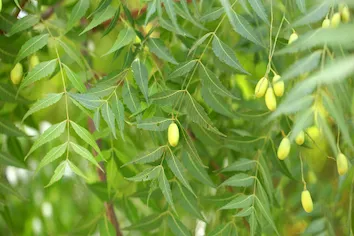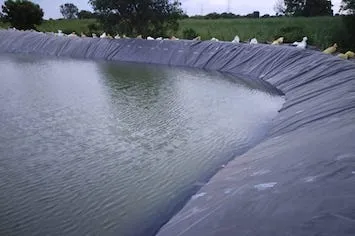 Back
Back
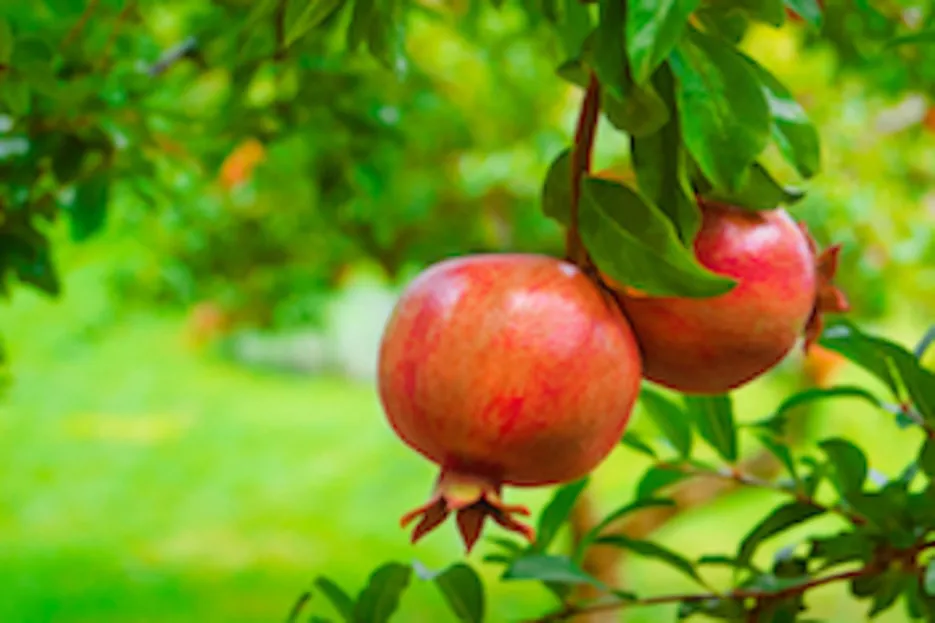
Pomegranate is one of the commercially important fruit crops of India. At present more than 1.25 lakh hectare area is grown under pomegranate in India; of which 0.87 lakh hectare area is in the state of Maharashtra alone. This state contributes more than 70% of the total area under Pomegranate in India followed by Karnataka and Andhra Pradesh. Hence Maharashtra state is considered to be the pomegranate basket of India.
Soil and climate:
Soil and climate:

Pomegranate grows well in sandy loam or black soils with good drainage facility. Pomegranate crop requires a hot and dry climate during fruit development and ripening.
Propagation:
Propagation:
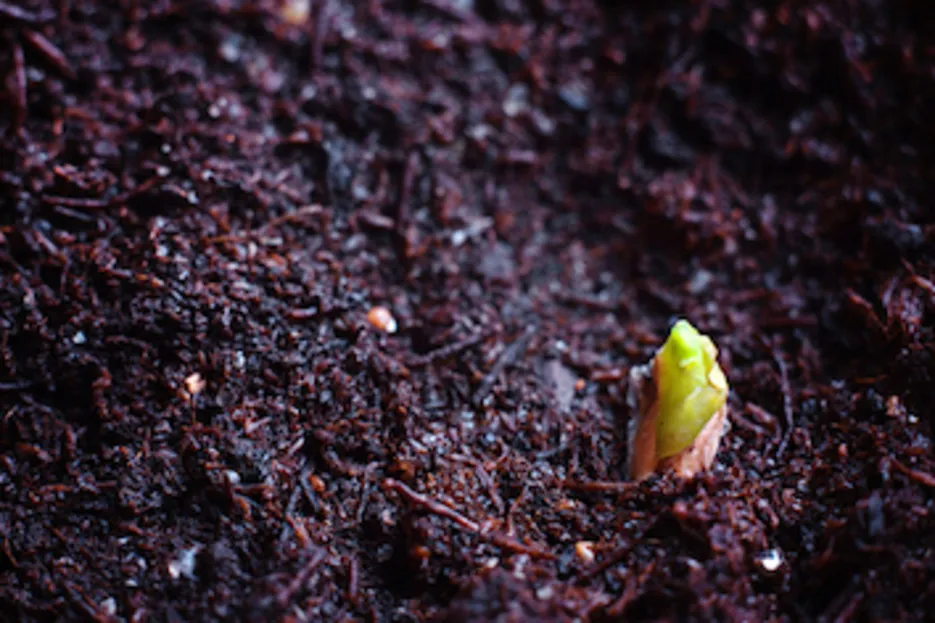
Pomegranate is cultivated by cuttings. For rooting treatment chemicals like Butyric acid were found to improve rooting. The best time to make the cuttings is December month. The cuttings in the nursery fields are planted directly in the main field.
Planting:
Planting:
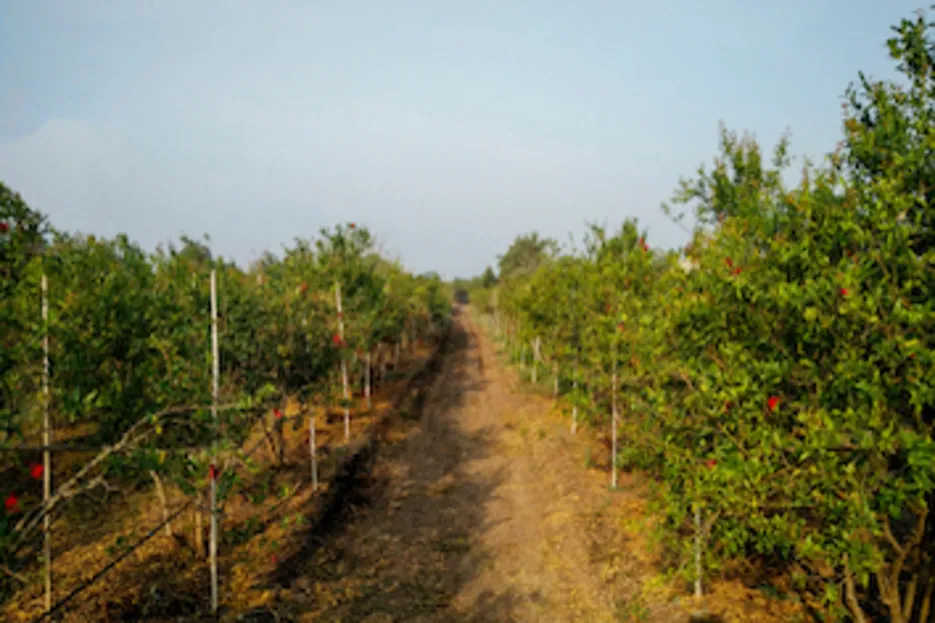
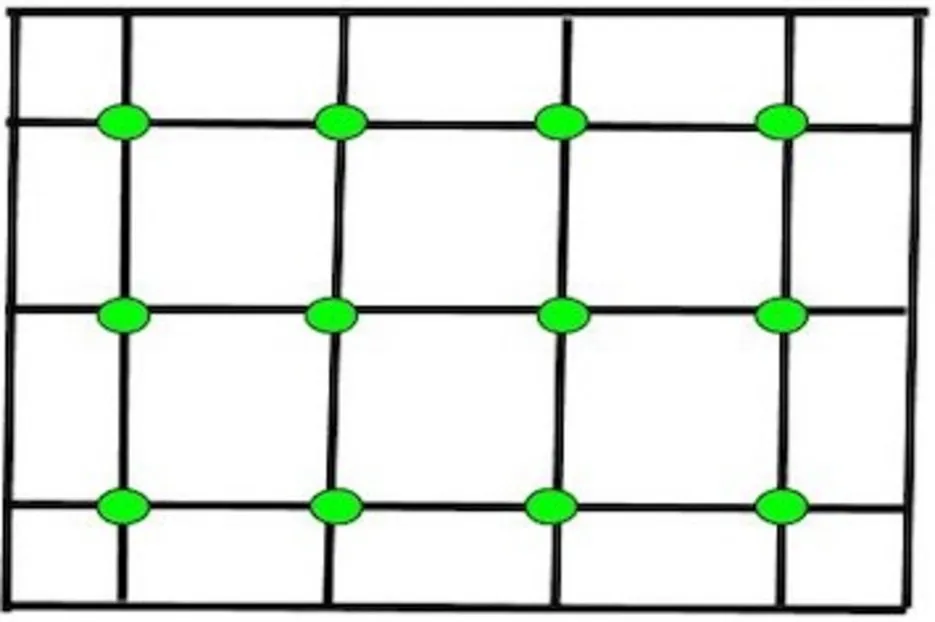
Spacing can vary based on soil type and other practices. Generally, the spacing of 4.5x5 metres is practised in many places in case of Square System of planting. For planting Pomegranate, a pit size of 50 square centimetres is to be made. Refill the pit with topsoil mixed with farmyard manure and 1 kilogram of Single Super Phosphate.
Varieties:
Varieties:
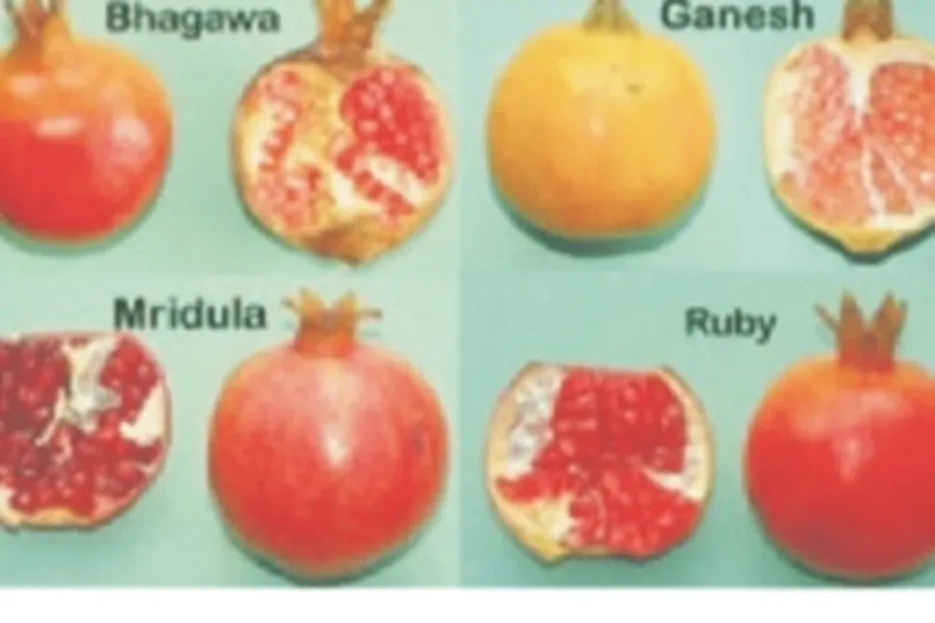
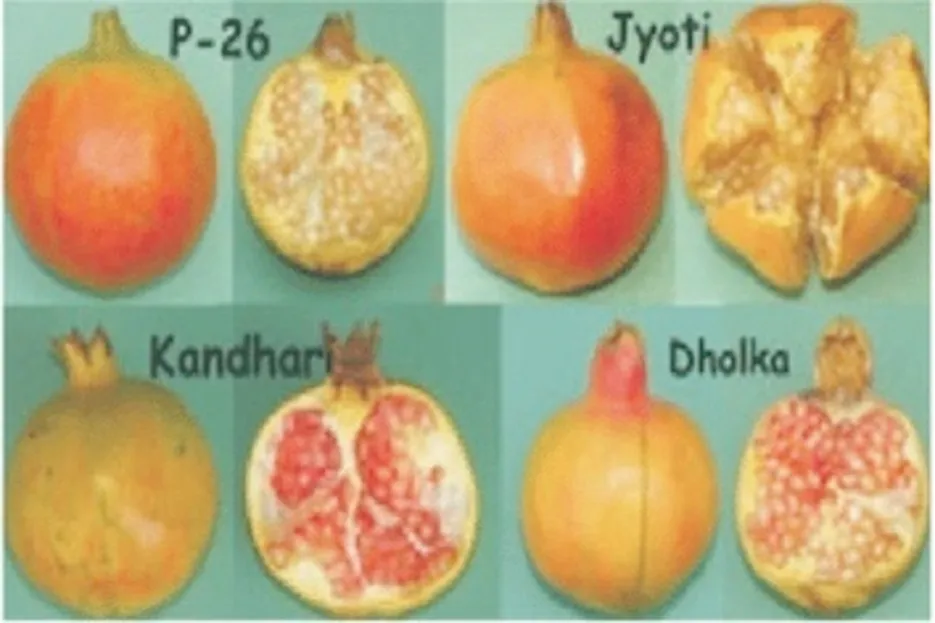
Plant locally suitable varieties and procure from reliable sources. Some of the cultivated varieties occupying the large area are Co1, Alandi, Vadki, Dholka, Kandhari Ganesh (GB I), Muskat, Nabha, Mridula, Aarakta, Jyoti and Ruby.
Irrigation:
Irrigation:
Pomegranate has to be irrigated regularly for commercial yields. Regular irrigation from flowering till harvesting is necessary, otherwise, flower drop may happen and fruits show cracking. In winter, the irrigation has to be done at every 10 days interval and in summer at every 7 days interval.
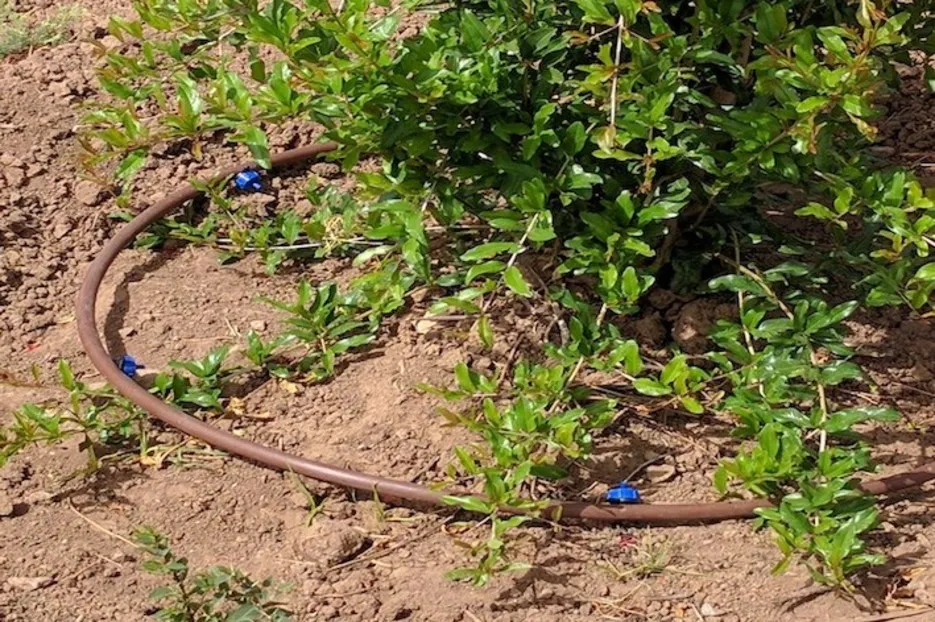
Pruning and Training:
Pruning and Training:
Regular pruning is necessary for Pomegranate to, removed and died, branches, training branches in a criss-crossing way. Apply Bordeaux paste to the cut ends after every pruning.
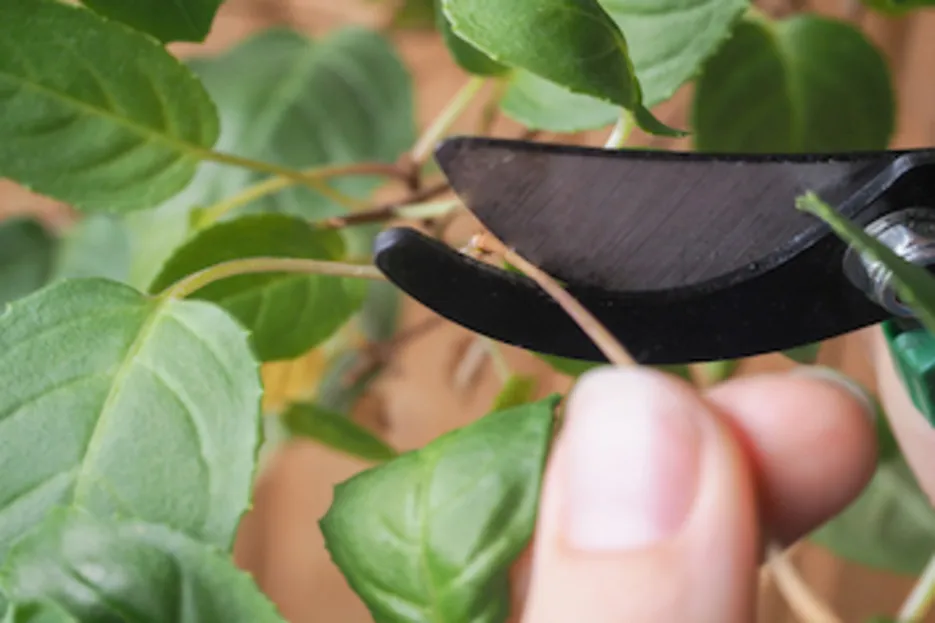
Inducing flowering:
Inducing flowering:
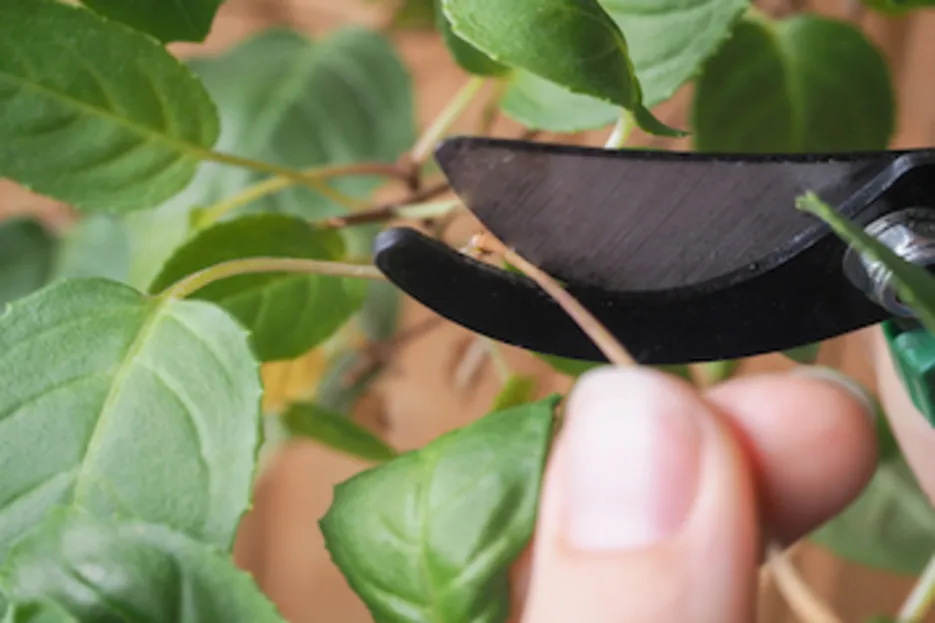
Uniform flowering is induced by Bahar treatment. During this period the irrigation is withheld 45 days prior to the bahar followed by light earthing up in the basin. The recommended doses of fertilizers are applied immediately after pruning and irrigation is provided. This practice leads to profuse flowering and fruiting. This can be done primarily at different times and farmers call this with different terminologies :Mrig Bahar: June-July. Hasth bahar: Sept- Oct. Ambe Bahar: Feb- Mar.
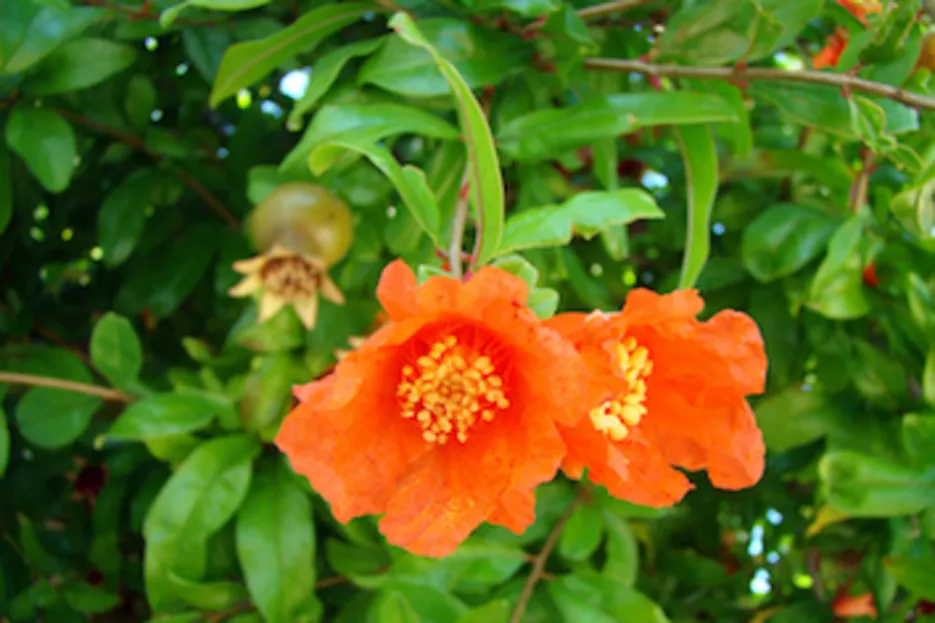
Pollination
Pollination
Protect honey bees during pollination period for better yields. Hand pollination can also be practised for higher yields.
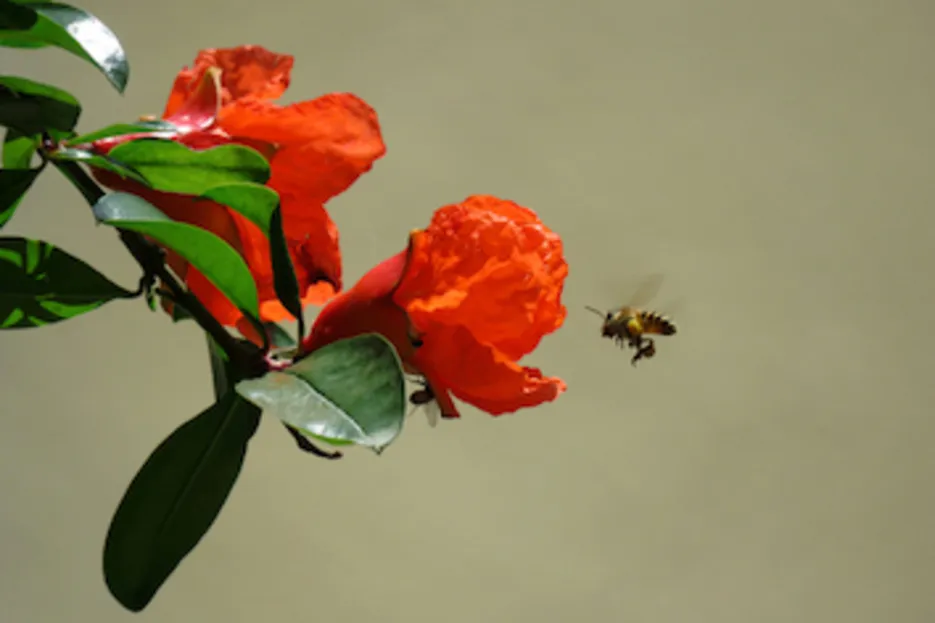
Fertilizer schedule:
Fertilizer schedule:
Maintain a balanced fertilizer schedule as per local Agriculture University recommendation. Generally, Boron deficiency is common in Pomegranate orchards. Due to this deficiency fruits become small, harder and sometimes crack. Leaves become thick and show scattered yellow spots. Boron deficiency can be rectified by soil application of Borax 20 grams per tree or spray Yaravita Bortrac 150 liquid formulation for quick results.
Disease management:
Disease management:

On Pomegranate, irregular dark brown spots may appear on fruits because of which market price may be impacted. Please spray Antracol (Propineb 70%WP) to control Anthracnose disease. If the crop is infected with fruit rot, destroy the fruits infected with fruit rot and prevent the spread of this disease.
Insect management:
Insect management:
Important insect pests are Pomegranate butterfly ( Anar Butterfly), Bark eating caterpillar, Sap sucking insects (aphids, mealybugs, thrips). For control of Anar butterfly spray of Neem Seed Kernel Extract (NSKE-5%) or Neem oil (3 %) at 15 days interval. These neem-based insecticides act as a deterrent for egg-laying. Bagging of fruits with a muslin cloth or butter paper bags just after the fruit set has been found effective. In severe cases, safer insecticidal sprays with a blue or green triangle have to be sprayed with only recommended doses.
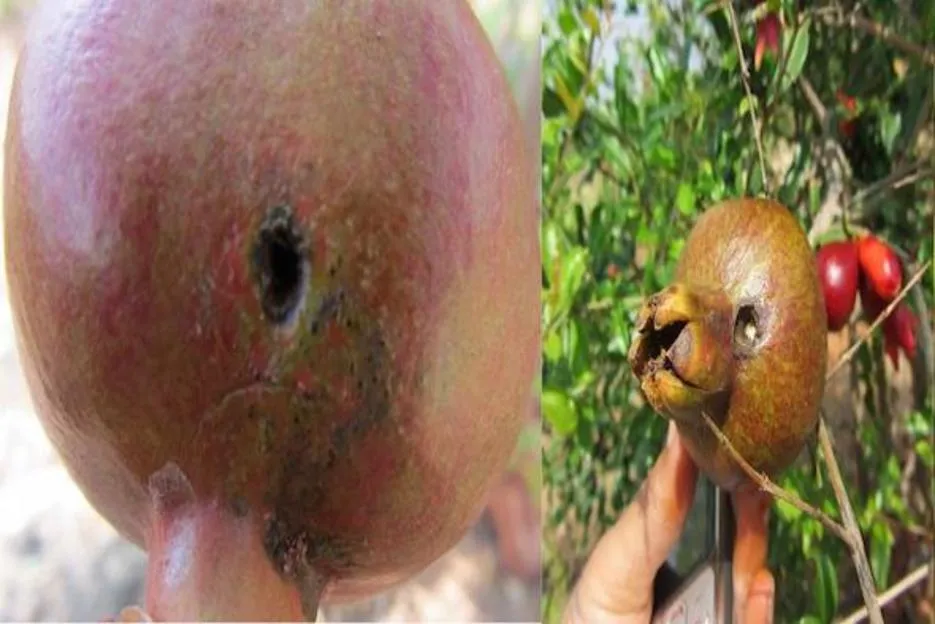
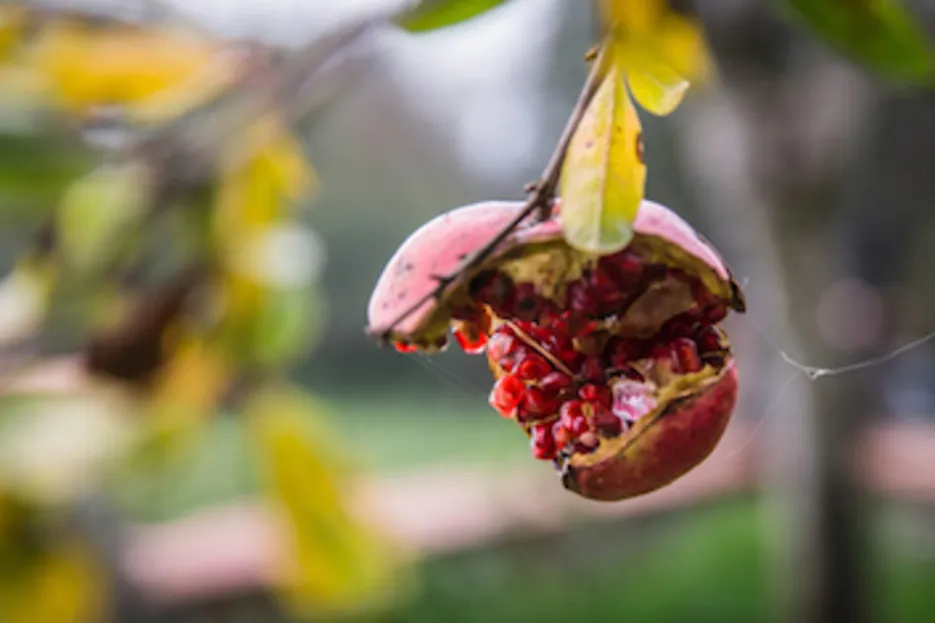
Waiting period:
Waiting period:
Maintain a waiting period of at least 10 days after spray of insecticides and fungicides. Always use plant protection equipment while spraying pesticides.
Harvesting:
Harvesting:
Harvest fruits when the skin colour changes from green to reddish yellow or yellow or brown. Sort out the fruit as per the size while it becomes somewhat soft. Ridges of the fruit become flat. Ridge Pack them in bamboo baskets, wooden crates or cardboard boxes with a cushioning of paddy straw or dry grass or paper cuttings. Transport as quickly as to the markets to get a good price.
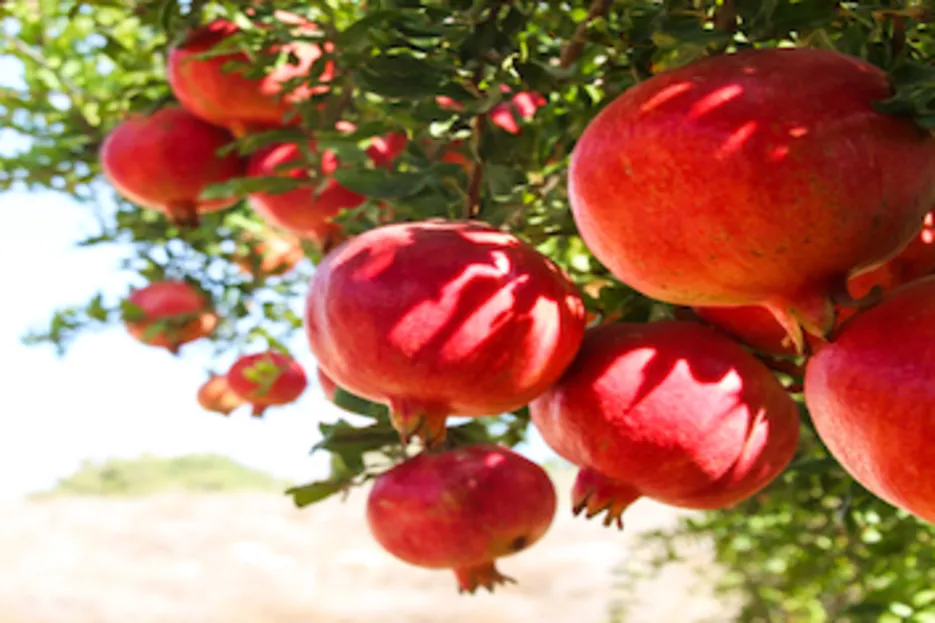
Thank you for reading this article, we hope you clicked on the ♡ icon to like the article and also do share it with your friends and family now!
Thank you for reading this article, we hope you clicked on the ♡ icon to like the article and also do share it with your friends and family now!

